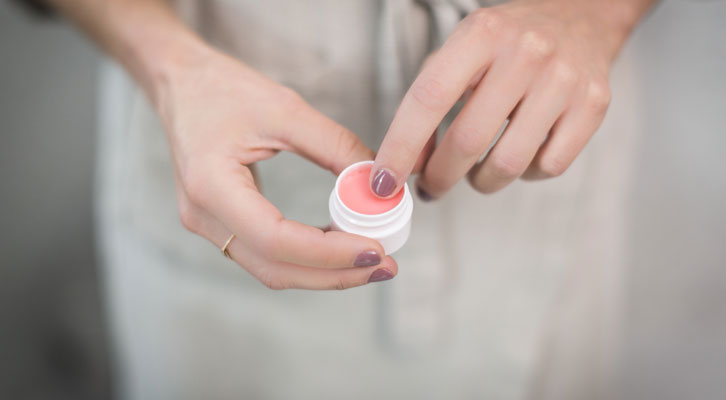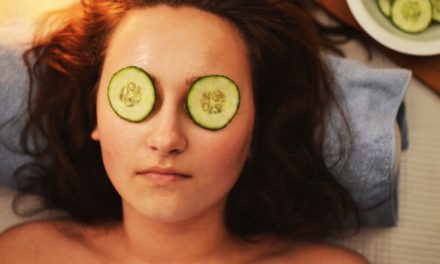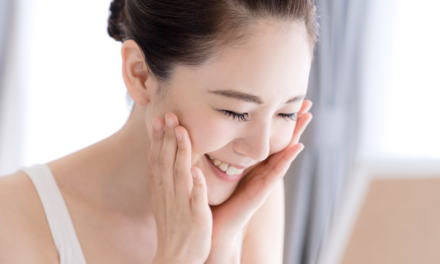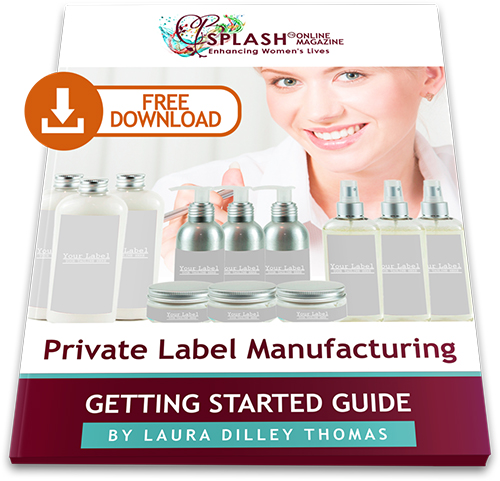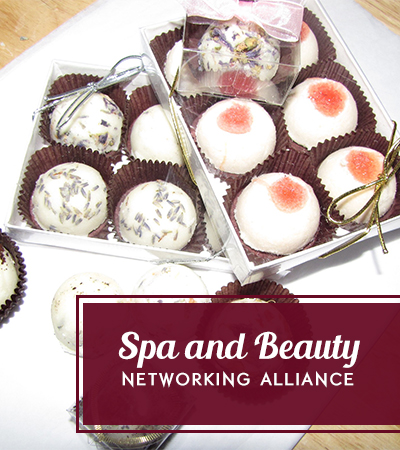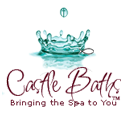During the thankfully few times I’ve ever had to learn that a friend or loved one was battling cancer, what always unnerved me the most when visiting in and out of the hospital was the medicinal, metallic odor that seemed to linger around her regardless of where we would go. I never wanted to say anything about it, and didn’t even know what to call it at first, but it was always there – an olfactory reminder that seemed to whisper in the background, “You’re not done yet. You may be smiling and having fun now that you’re out of that hospital but you still have a long way to go to recovery.”
I took it upon myself to find out exactly what that unpleasant metallic odor was and why it wouldn’t leave my friend alone. The answer was none too consoling. Apparently radiation treatments and chemotherapy can leave behind lingering isotopes and/or toxic heavy metals in the skin. The unpleasant metallic odor I was smelling really was metal, and if it was bothering me, it was probably making her absolutely miserable. Keep in mind however, I personally have a nose like no other- I smell everything like a pregnant women does!
…radiation treatments and chemotherapy can leave behind lingering isotopes and/or toxic heavy metals in the skin
So, back to Google I went in search of anything more I could find out about this side effect and whether there was anything I could get her as a gift that would help. I ended up doing much more than that. I found several articles about multiple side effects of various cancer treatments that could cause lingering changes in the skin, and some helpful tips for dealing with them. Eventually I had learned so much about skin care after cancer I was practically a walking encyclopedia the next time I saw her, but for the sake of brevity, here are my top 8 post-cancer skin care tips.
1. Avoid fragrances and other synthetic ingredients
Synthetic fragrances are often made of contaminated aromatic hydrocarbons and a host of other chemicals that have been linked to cancer, and the last thing anybody undergoing treatment for cancer needs is something that could potentially trigger a resurgence of the condition. It is also advisable for your friend or loved one to avoid soaps and disinfectants containing the anti-bacterial chemical Triclosan, as this too has labeled as being potentially carcinogenic (meaning it may cause cancer.) Another common family of chemicals to watch out for are Parabens, which are used as preservatives in many skin care products. These chemicals are endocrine disruptors (meaning they mimic the hormone estrogen) and as such, have been linked to the development of breast cancer.
2. Use UV protection
Skin that has been treated with radiation is at a much higher risk of developing UV-related skin cancer, so it is more important than ever for your friend or loved one to take precautions when spending time outdoors, or even if the sun happens to be shining through the window in his or her room.
Skin that has been treated with radiation is at a much higher risk of developing UV-related skin cancer
Appropriate precautions include wearing a hat and sufficient clothing to cover damaged skin, and using a non-nano zinc oxide based sunscreen or a natural alternative with UV-protective properties. Nano-based sunscreens contain microscopic particles (called nano-particles) that can sometimes break down and cause free radical oxidation of the skin, which is the underlying cause of sunburns and exactly the problem sunscreens are intended to prevent.
3. Avoid makeup and anti-acne medications
Your friend or loved one may be inclined to use makeup or acne medications to cover up or alleviate any rashes or blemishes that appear as a result of radiation or chemotherapy. However, doing so may actually exacerbate the problem.
…some cancer patients have found they developed allergies to certain cosmetics and creams that never gave them any problems before
Skin that has been treated with radiation or chemotherapy is likely to be super-sensitive in the days and weeks following treatment, and some cancer patients have found they developed allergies to certain cosmetics and creams that never gave them any problems before. If your friend or loved one really wants to use makeup, it is advisable to conduct a skin patch test to determine if any new allergies have appeared, and to only test one product at a time.
4. Avoid most nail polishes
Some cancer patients choose to use nail polish to hide the changes that develop in the fingernails as a result of radiation or chemotherapy. However, many nail polishes are made with dibutyl phthalate, toluene, and formaldehyde, all of which are potential carcinogens. Using nail polish remover can also be damaging to the cuticles, so it is best to use just one dark, water-based polish that is free of these three toxic substances, or to simply go without polish.
5. Choose creams and ointments over lotions
Facial creams and ointments are generally better at helping your skin retain moisture than ordinary lotions, and are more likely to be unscented. These creams are also more likely to contain higher quality ingredients. Yes, it is ok and perfectly legal to use a face cream on your body! (smile)
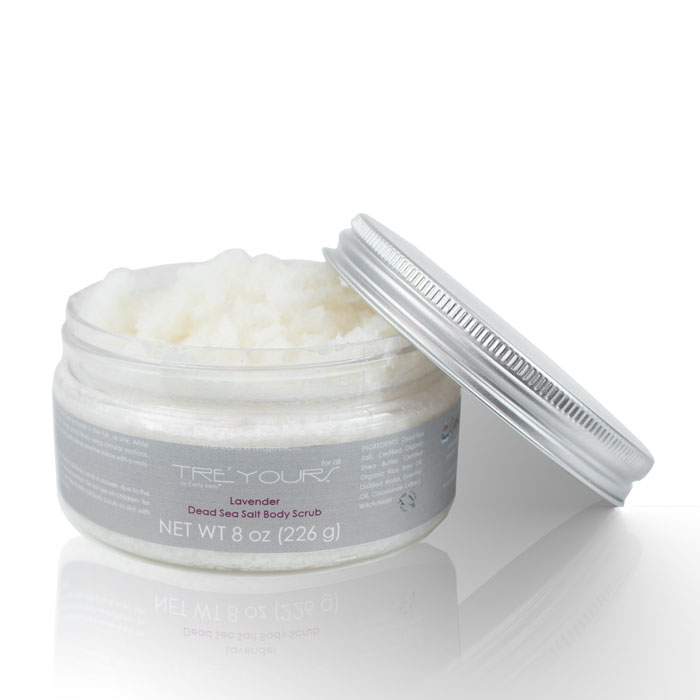
6. Avoid exfoliants, loofahs, and scrubs
Generally, regular exfoliation is one of the best practices to incorporate into a beauty and skin care regimen, but for cancer patients, it is important to always keep in mind that the skin is likely to be super-sensitive and fragile, so it’s usually a good idea to hold off exfoliating until skin starts to heal and can tolerate the abrasiveness of a salt scrub and/or loofah brush.
7. Avoid deodorants containing aluminum
Some scientific studies have suggested a possible link between frequent applications of aluminum-based deodorants and breast cancer, citing its potentially estrogenic effects when applied to the underarm area near the breast. Some deodorants also contain parabens as preservatives, which have also been linked to certain cancers.
8. Detox… but gently
As I said earlier, the use of radiation and chemotherapy for cancer treatments can leave behind lingering radioactive isotopes and/or heavy metals, neither of which are good for the skin (or any other part of the body for that matter.) This is the reason why people who have undergone chemotherapy often will have a lingering, unpleasant metallic scent to their skin.
Dead Sea Bath Salts are an excellent means of detoxifying and deep-cleansing the skin, but can be too abrasive to use on the sensitive skin of a cancer patient in their natural form. Using a Dead Sea Salt soap such as this Tre’Yours Dead Sea Salt Soap is a better means of deep-cleansing for someone undergoing treatment for cancer, and feels much more like lotion on the skin than soap.
Using a Dead Sea Salt Soap is a better means of deep-cleansing for someone undergoing treatment for cancer.
Your friend or loved one will still likely have a long road to full recovery, but at least she will be armed with new knowledge of proper skin care after cancer and hopefully will be able to enjoy life between outpatient treatments without lingering side effects.

